Poodle Separation Anxiety (Help!)
Poodles are loyal pets, and like all animals, they depend on us to care and provide for them. Dogs love to travel, but sometimes it is not appropriate to take them along. When you leave your poodle behind, it can develop separation anxiety.
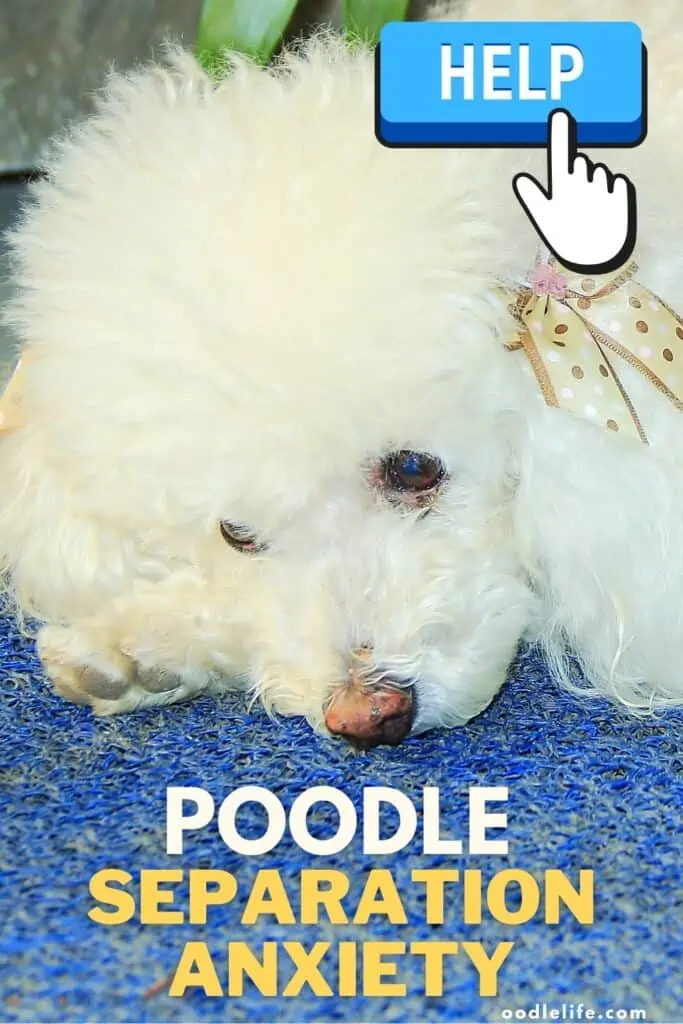
What is Poodle Separation Anxiety?
Separation anxiety is a form of stress from loneliness after the owner leaves. It can happen at any age and is common among rescue and shelter dogs. Dogs who are very close to their owners also often suffer from separation anxiety.
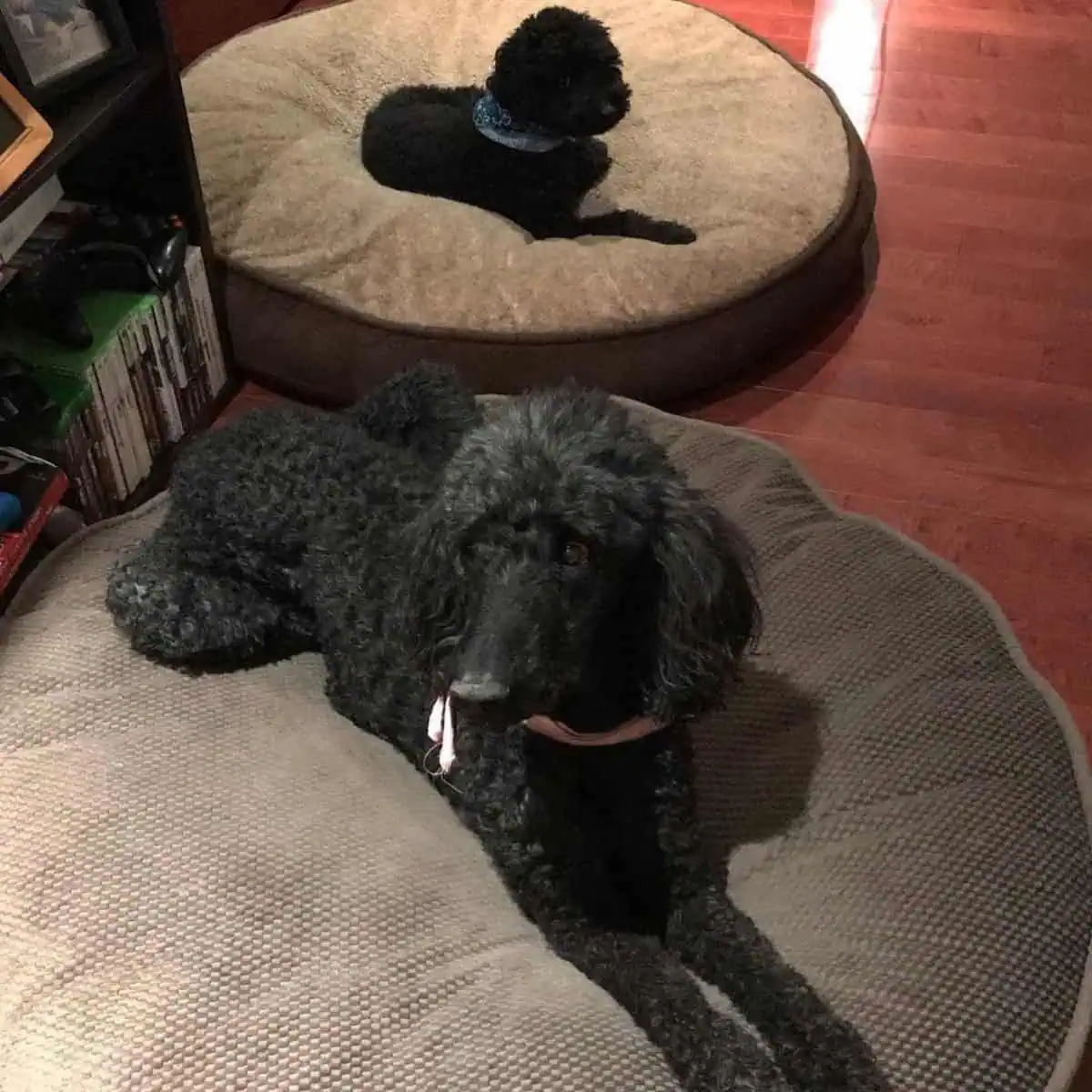
Poodle Separation Anxiety
When you leave home without your Poodle, it can become anxious. You may notice changes in its behavior that you have never seen before. Like a small child, dogs can have fits and act out.
Signs Your Poodle May Be Anxious
- Excessive barking
- Drooling
- Biting furniture, shoes (destructive behavior)
- Overeating or not eating enough
- Relieving itself on the floor
- Sleeplessness
- Pacing or escaping
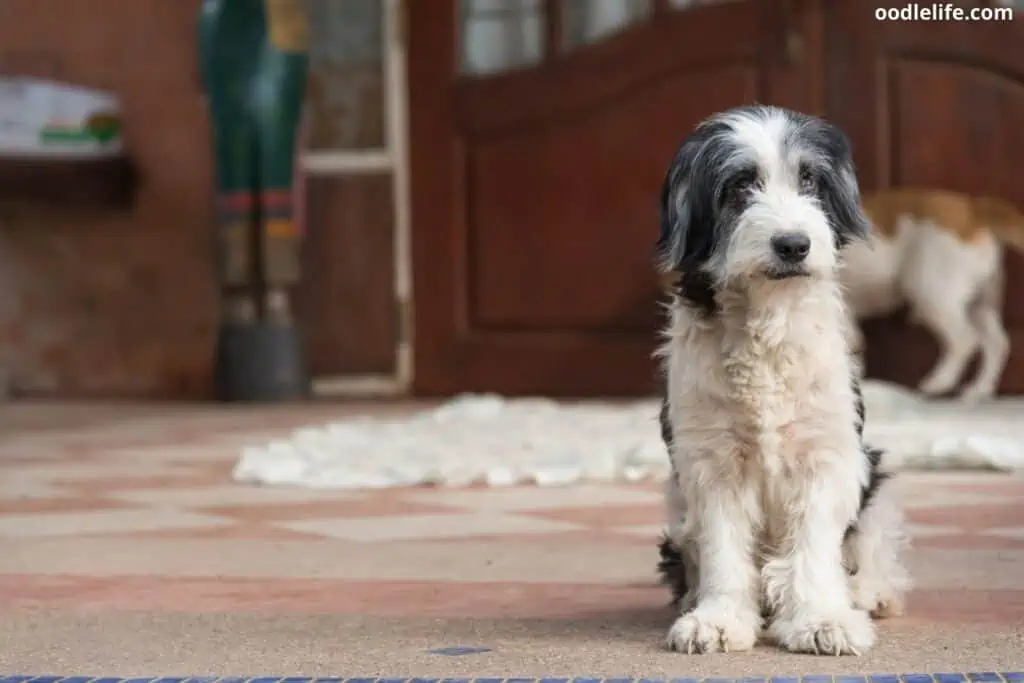
Any other odd behaviors could indicate your Poodle is experiencing canine separation anxiety.
If you have an older dog, these signs may be worse. Elderly Poodles do not handle it well when the owner is away. You do not have to be absent long for your poodle to act up.
Studies have proven how separation anxiety can affect a dog’s behavior. In one study, a dog that was home alone destroyed property and injured itself. Another study resulted in a dog chewing through electrical wiring and setting the house on fire.
Why Does My Poodle Act Out When I Am Away?
Triggers of dog separation anxiety may include stress in the home, such as the loss of a family member or sudden changes in routine. Several other reasons can explain why your Poodle becomes anxious when you leave.
Pet/Owner Bonds
If you are close to your poodle, leaving it at home can be stressful and scary for it. The bond between you is precious, and being away from each other can cause feelings of sadness and betrayal in your Poodle.
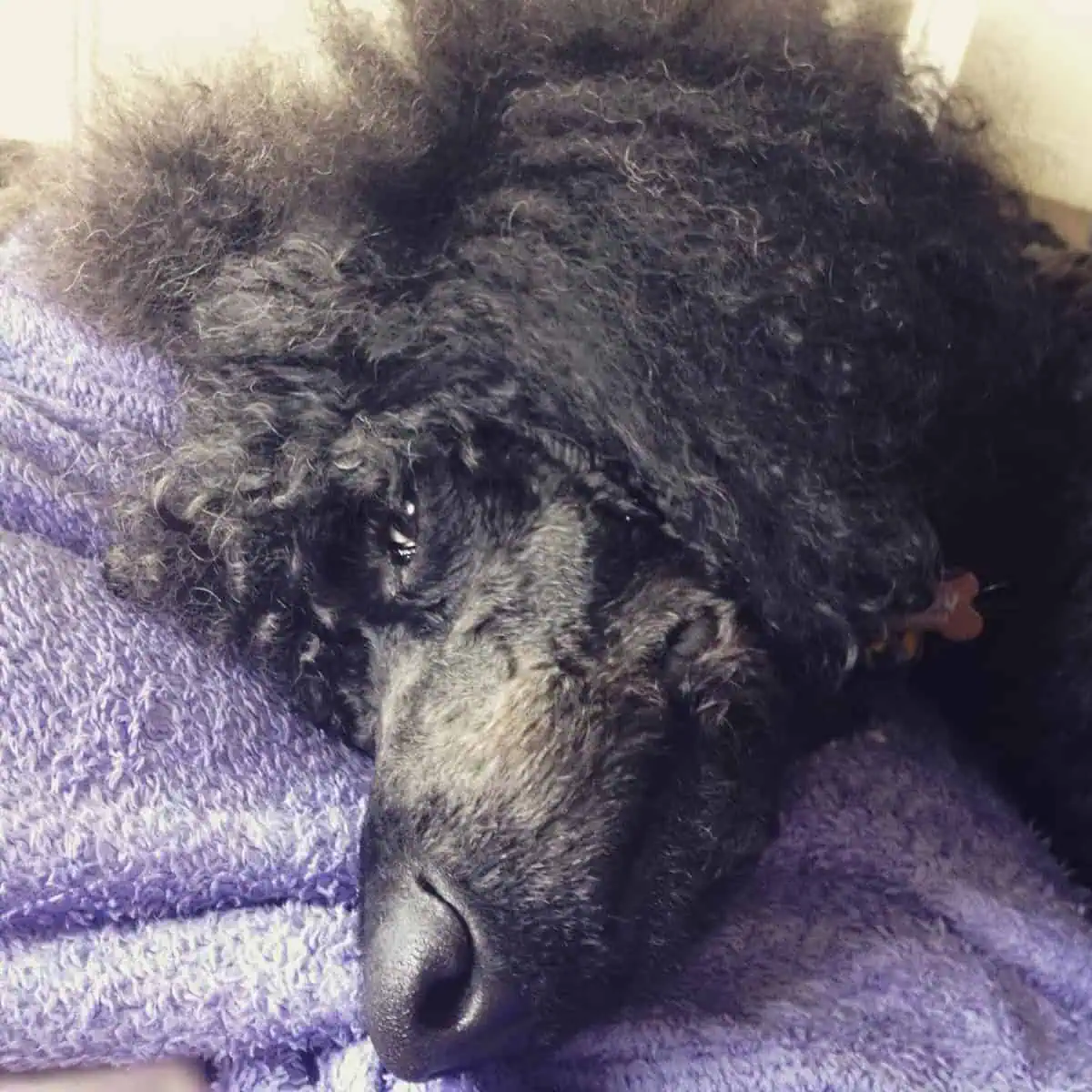
Previous Trauma
Dogs who have transferred between owners tend to exhibit signs of anxiety. If you have a rescue poodle from an abusive home, it may put up walls at first. It may take a while for it to trust another human but once that bond is in place, your poodle will begin to attach itself to you.
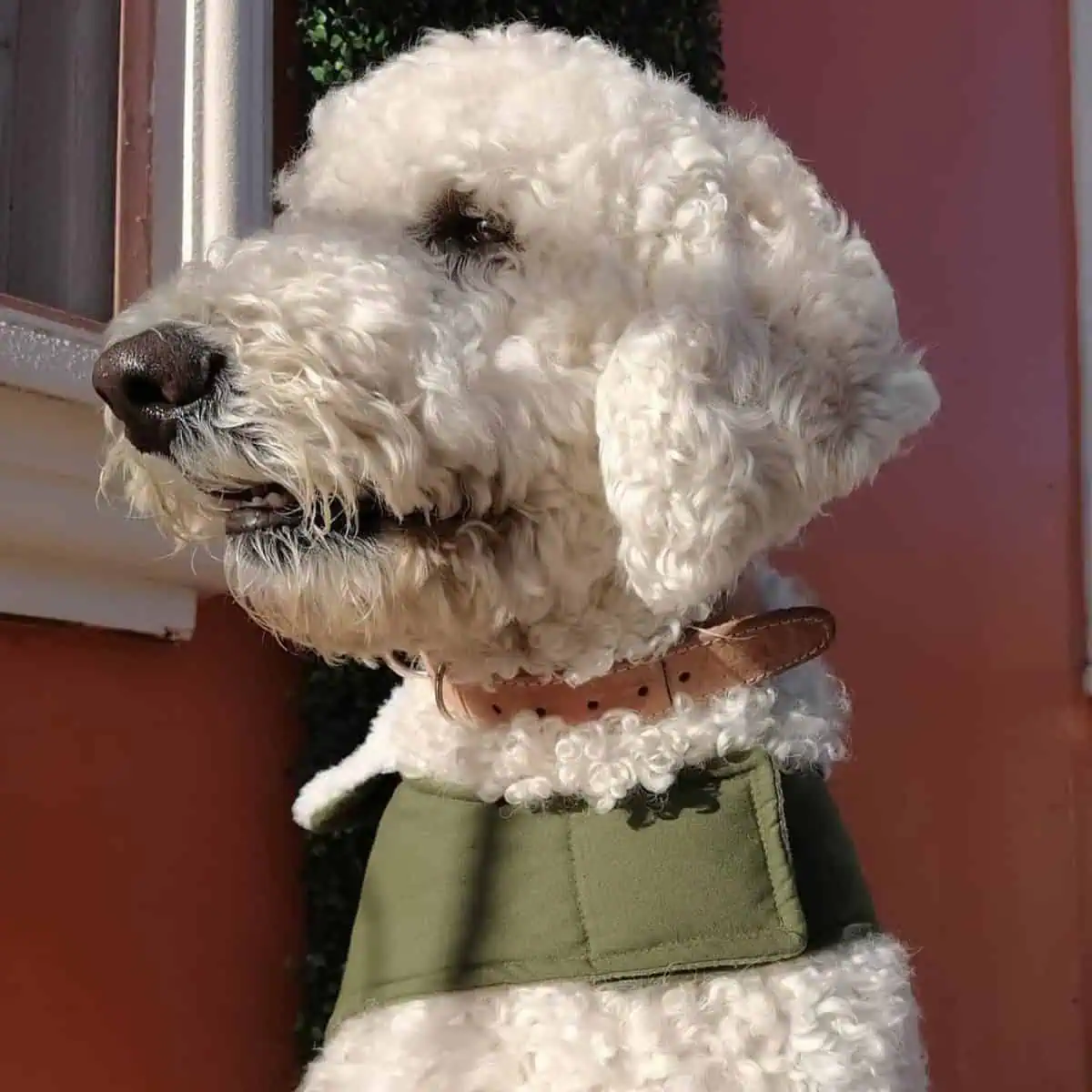
Leaving home without it may bring up some painful memories from its past and fear of abandonment. Your Poodle may not feel safe by itself if there are conditions that appear threatening, such as a bad neighborhood with a lot of noise.
Changes in the Family
Moving into a new home can cause your Poodle to become anxious. A new family member or an alteration in your work schedule can trigger some anxiety and cause unwanted behaviors to surface. Your poodle may need some time to adjust to the new changes.
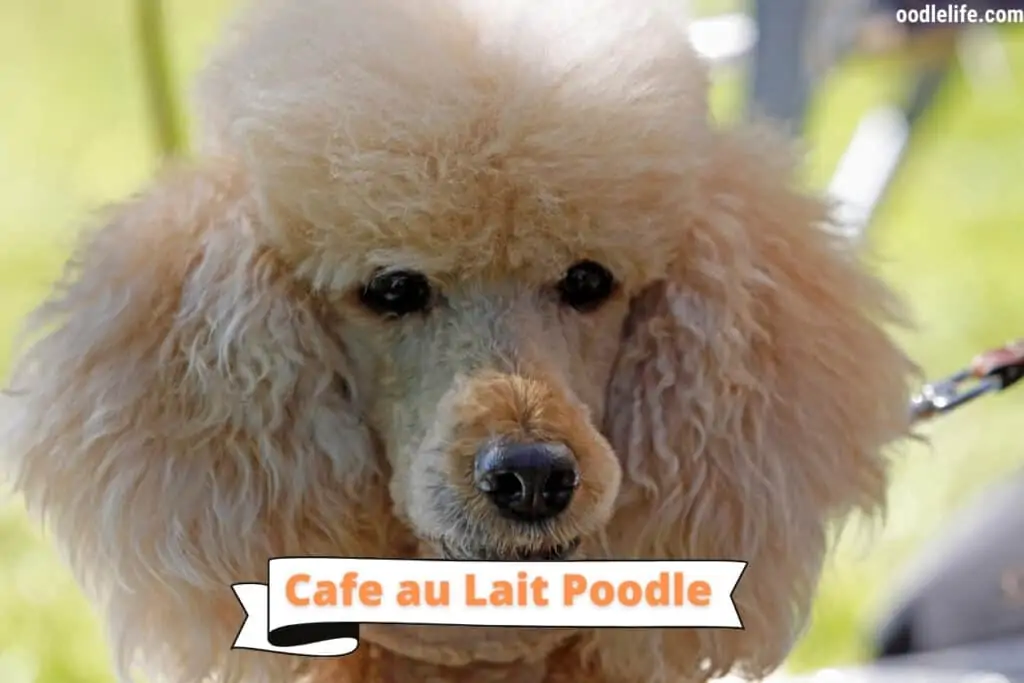
Loneliness
If your poodle spends more time alone than with you, it may use separation anxiety as a way to get your attention. It may be craving affection and start displaying loneliness with inappropriate behavior.
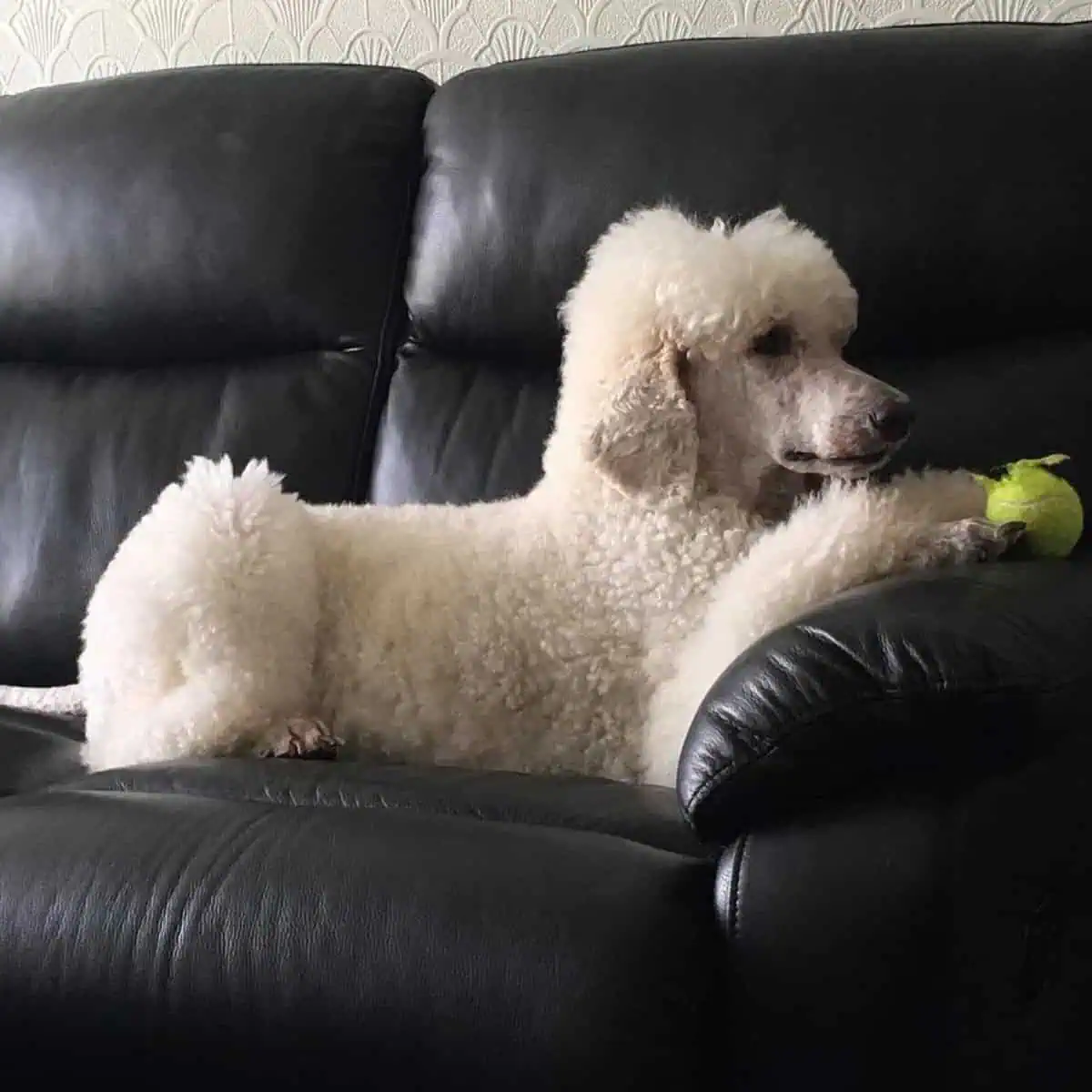
Aging
An elderly Poodle may need extra care due to declining health. Leaving your old Poodle at home for long periods may cause stress, causing it to lose bladder or bowel control.
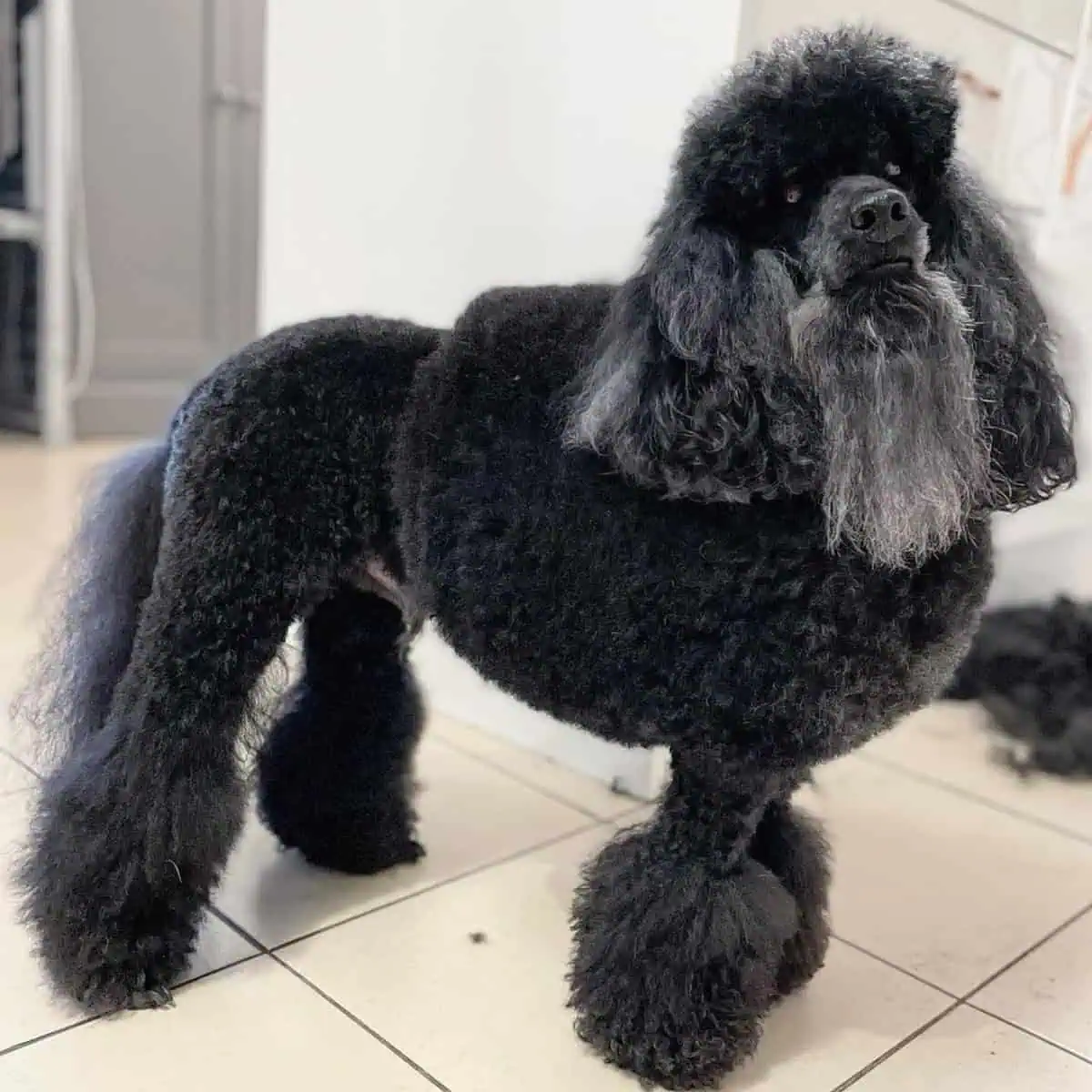
Health-Related Issues
Your poodle may be acting out as a reaction to a medication or a medical problem. Common conditions that can alter a dog’s routine may include urinary tract infections (UTIs) or other complications with the urinary system, kidney disease, diabetes, thyroid disorders, neurological problems, and incontinence (loss of bladder/bowel control).
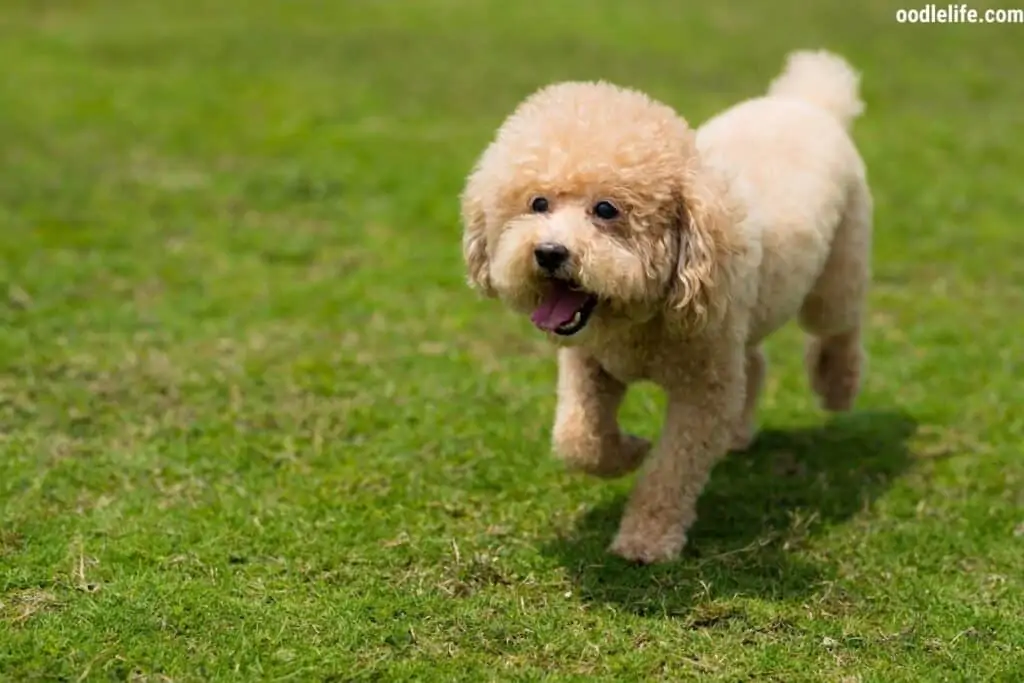
Before deciding that separation anxiety is a behavioral problem, speak with your veterinarian, who can rule out causes and help you come up with a solution.
How to Resolve Poodle Separation Anxiety?
The severity of the dogs anxiety may determine how you deal with it. The best way is prevention.
Mild Anxiety
If your Poodle is experiencing a mild case of anxiety, be calm when you leave and return, and do not exaggerate the fact that you are going away. Think of a way to make your poodle understand that you will be back, such as a word or action it will recognize as reassurance.
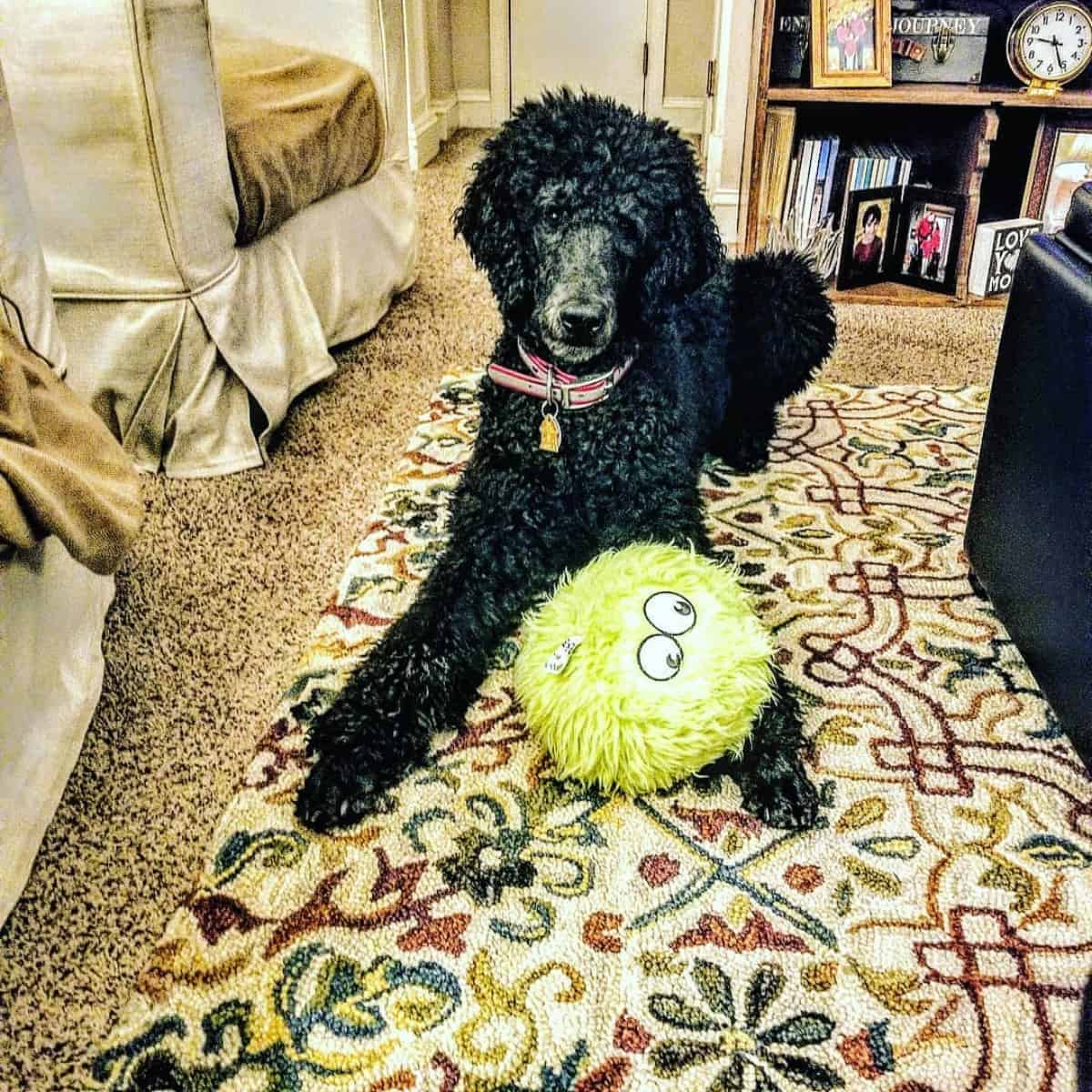
Offer your poodle a special toy or treat right before you leave. When you get home, take that treat away and use it only when you are away. If your Poodle has a favorite item with your smell, leave it with your canine companion.
Severe Anxiety
You may need an expert to help with this problem. The use of positive reinforcement is effective in calming a dog when an owner is absent. As a way to decrease stress, your Poodle needs plenty of exercise and the opportunity to explore new places.

Consider allowing designated space for your poodle to be active while you are gone, such as a large room or basement. It lets your Poodle play rough with its toys and release some energy. Maybe leave something with a familiar scent that may calm it down.
Some poodles become anxious when they see owners getting ready to leave. Try these dog training ideas:
- Gradually ease your Poodle into accepting that you are leaving. Get ready to leave, then sit down for a few minutes.
- Gradually increase your time away. Start with briefly disappearing behind a door with your poodle watching, then reappearing. Each time try to increase your time absence.
- Organize a dog sitter for long separation days
- Consider a dog walker as an alternative to break up the day
Mild separation anxiety can be managed, extreme separation anxiety needs a certified applied animal behaviorist for guidance.
How to Prevent Poodle Separation Anxiety?
If possible, start training when your Poodle is a puppy. Allow it to spend time alone in its crate or play area with toys so it can adjust to being alone. Introduce your young poodle to other dogs to learn how to interact with others and not depend solely on you for entertainment.
If your Poodle enjoys the company of others, leave it with another family member or in a kennel while you are away. Consider a tranquilizer as a last resort if nothing else helps. Ask your veterinarian regarding other options.